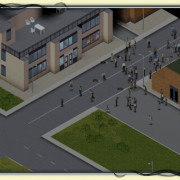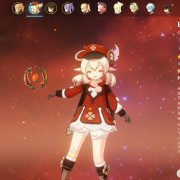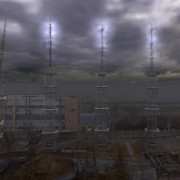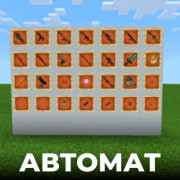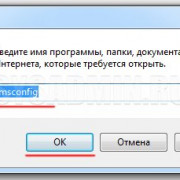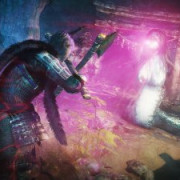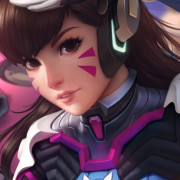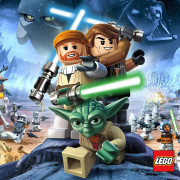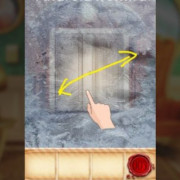Rally world
Игры
Основные названия
| Заголовок | Выпускать | ПК | 6-го поколения | 7-го поколения | 8-го поколения | 9-е поколение | Портативный | Разработчик | Примечания |
|---|---|---|---|---|---|---|---|---|---|
| Чемпионат мира по ралли | 2001 г. | N / A | PS2 | N / A | N / A | N / A | N / A | Evolution Studios | На основе сезона WRC 2001 г. |
| WRC II Extreme | 2002 г. | N / A | PS2 | N / A | N / A | N / A | N / A | Evolution Studios | На основе сезона WRC 2002 г. |
| ВКР 3 | 2003 г. | N / A | PS2 | N / A | N / A | N / A | N / A | Evolution Studios | На основе сезона WRC 2003 г. |
| ВКР 4 | 2004 г. | N / A | PS2 | N / A | N / A | N / A | N / A | Evolution Studios | На основе сезона WRC 2004 года. |
| WRC: Rally Evolved | 2005 г. | N / A | PS2 | N / A | N / A | N / A | N / A | Evolution Studios | На основе сезона WRC 2005 г. |
| WRC FIA Чемпионат мира по ралли | 2010 г. | Окна | N / A | PS3 , X360 | N / A | N / A | 3DS | Веха | На основе сезона WRC 2010 г. |
| WRC 2: Чемпионат мира по ралли FIA | 2011 г. | Окна | N / A | PS3, X360 | N / A | N / A | N / A | Веха | На основе сезона WRC 2011 г. |
| WRC 3: Чемпионат мира по ралли FIA | 2012 г. | Окна | N / A | PS3, X360, OnLive | N / A | N / A | Vita | Веха | На основе сезона WRC 2012 г. |
| WRC 4: Чемпионат мира по ралли FIA | 2013 | Окна | N / A | PS3, X360 | N / A | N / A | Vita | Веха | На основе сезона WRC 2013 г. |
| ВКР 5 | 2015 г. | Окна | N / A | PS3, X360 | PS4 , Xbox One | N / A | Vita | Kylotonn | По результатам сезона WRC 2015 г. |
| ВКР 6 | 2016 г. | Окна | N / A | N / A | PS4, Xbox One | N / A | N / A | Kylotonn | На основе сезона WRC 2016 г. |
| WRC 7 | 2017 г. | Окна | N / A | N / A | PS4, Xbox One | N / A | N / A | Kylotonn | На основе сезона WRC 2017 |
| ВКР 8 | 2019 г. | Окна | N / A | N / A | PS4, Xbox One | N / A | Nintendo Switch | Kylotonn | На основе сезона WRC 2019 |
| ВКР 9 | 2020 г. | Окна | N / A | N / A | PS4, Xbox One | PS5 , Xbox серии X / S | Nintendo Switch | Kylotonn | На основе сезона WRC 2020 года |
| ВКР 10 | 2021 г. | Окна | N / A | N / A | PS4, Xbox One | PS5, Xbox серии X / S | Nintendo Switch | Kylotonn | На основе сезона WRC 2021 года |
Спин-оффы
| Заголовок | Выпускать | ПК | 5-го поколения | 6-го поколения | 7-го поколения | Портативный | Разработчик | Примечания |
|---|---|---|---|---|---|---|---|---|
| WRC: Чемпионат мира по ралли FIA Аркады | 2002 г. | N / A | PS1 | N / A | N / A | N / A | Уникальные студии разработки | На основе сезона WRC 2002 г. |
| Чемпионат мира по ралли | 2005 г. | N / A | N / A | N / A | N / A | PSP | Рассказы путешественников | На основе сезона WRC 2005 г. |
| WRC Powerslide | 2013 | Окна | N / A | N / A | PSN , XBLA | N / A | Веха | На основе сезона WRC 2013 г. |
World Rally Cars: 1997 — 2016
The 1997 World Rally Championship brought with it a series of major changes. Group A cars were replaced by World Rally Cars, which took the pressure off the manufacturers as they were no longer required to mass-produce the production versions of the cars with which they competed. The revamp made it much easier for new manufacturers to join the series and the next few years saw increased interest and entries from teams such as Seat, Citroën, Peugeot and Hyundai.
In addition to new technical regulations, the new era saw an updated events system. Rallies became more compact in comparison to the long marathon-style events that crews were faced with beforehand, but the calendar was extended to include 14 rallies throughout the year across the world.
Whilst the majority of the manufacturers worked hard to build and develop their new world rally cars, Mitsubishi decided to take a different approach. Their Lancer Evolution was already a successful package and bore a close resemblance to the road-going model, which was good for sales. Because of this, the Japanese firm continued to enter its cars in Group A specification.
With Tommi Mäkinen at the wheel, Mitsubishi proved that their car was still one of the best, bringing home another Manufacturer’s’ title in 1998 whilst the Finn won the Drivers’ championship three years in a row between 1997 and 1999 following a series of hotly contested battles. Around that time, their closest challenger was British-based M-Sport Ford World Rally Team, which had employed McRae to pilot its Ford Focus.
In 2000, another Finn drove his way into the history books. Marcus Grönholm took his first world championship title driving a Peugeot 206. The French firm enjoyed a dream return to the sport’s top-flight as it also lifted the Manufacturers’ for the next three seasons.
British driver Burns took a hugely popular championship victory in 2001 with his Subaru Impreza, but Grönholm responded by taking back the title the year after.
In 2003, Norwegian legend Petter Solberg reigned victorious, but Citroën was Manufacturers’ champions thanks to some spirited performances from Sainz and a young Sébastien Loeb. Who would have known that the French hotshot would go on to dominate the series for the next decade?
Loeb was unbeatable on every surface and gave Citroën three Manufacturers’ world titles in a row. Despite Ford claiming the Manufacturers’ victories in 2006 and 2007, Loeb managed to retain control of his own titles. Along with co-driver Daniel Elena, he wrote his name into the rallying record books with a whopping nine Drivers’ World Championship wins at the wheel of the Xsara, C4 and DS3 models.
Loeb’s retirement from full-time driving at the end of the 2012 season marked the end of the most successful reign in the history of the World Rally Championship.
So, who was his successor? Well, he was French, and also called Sébastien!
Sébastien Ogier had also learned his craft at the wheel of a Citroën as a teammate to Loeb in 2011. However, the Frenchman later announced a new contract with German marque Volkswagen and piloted their Polo R WRC from 2013 onwards.
In a similar way the Loeb and Citroën had dominated, Ogier took Volkswagen to consecutive Manufacturers’ and Drivers’ titles between 2013 and 2016. After wrapping his fourth championship victory at the end of 2016, Volkswagen announced their withdrawal from the World Rally Championship with immediate effect.
With new regulations imminent, Ogier was left to find a new seat for the 2017 season…
| Year | Driver | Car | Team | |
| 1997 | Tommi Mäkinen (FIN) | Mitsubishi Lancer Evolution | Subaru | |
| 1998 | Tommi Mäkinen (FIN) | Mitsubishi Lancer Evolution | Mtsubishi | |
| 1999 | Tommi Mäkinen (FIN) | Mitsubishi Lancer Evolution | Toyota | |
| 2000 | Marcus Grönholm (FIN) | Peugeot 206 | Peugeot | |
| 2001 | Richard Burns (GBR) | Subaru Impreza | Peugeot | |
| 2002 | Marcus Grönholm (FIN) | Peugeot 206 | Peugeot | |
| 2003 | Petter Solberg (NOR) | Subaru Impreza | Citroën | |
| 2004 | Sébastien Loeb (FRA) | Citröen Xsara | Citroën | |
| 2005 | Sébastien Loeb (FRA) | Citröen Xsara | Citroën | |
| 2006 | Sébastien Loeb (FRA) | Citröen Xsara | Ford | |
| 2007 | Sébastien Loeb (FRA) | Citröen C4 | Ford | |
| 2008 | Sébastien Loeb (FRA) | Citröen C4 | Citroën | |
| 2009 | Sébastien Loeb (FRA) | Citröen C4 | Citroën | |
| 2010 | Sébastien Loeb (FRA) | Citröen C4 | Citroën | |
| 2011 | Sébastien Loeb (FRA) | Citröen DS3 | Citroën | |
| 2012 | Sébastien Loeb (FRA) | Citröen DS3 | Citroën | |
| 2013 | Sébastien Ogier (FRA) | Volkswagen Polo R | Volkswagen | |
| 2014 | Sébastien Ogier (FRA) | Volkswagen Polo R | Volkswagen | |
| 2015 | Sébastien Ogier (FRA) | Volkswagen Polo R | Volkswagen | |
| 2016 | Sébastien Ogier (FRA) | Volkswagen Polo R | Volkswagen |
Group A: 1987 — 1996
With Group B now outlawed, the FIA needed to introduce a new class structure for the 1987 season onwards. The answer? Group A.
In comparison to Group B, the Group A regulations meant that all of the vehicles competing were strictly based on their production counterparts, with limitations on aspects such as power, weight and aerodynamics. These restrictions also helped to bring down the overall cost to manufacturers and encouraged more privateer teams to enter the rallies.
Of course, with new regulations came brand-new rally cars and vehicles including the Lancia Delta Integrale, Mitsubishi Lancer Evolution, Ford Escort Cosworth and Toyota Celica GT-Four all graced the stages.
Building on the success that they enjoyed with the Delta S4 Group B car, the Lancia marque was once again quick out of the blocks and were seemingly unbeatable with their new Delta Integrale. The team dominated the Manufacturers’ points right through until 1992, taking the prestigious title an incredible six years on the trot. Juha Kankunnen and Miki Biasion also enjoyed their share of success with the car, claiming the Drivers’ championship victory two times each during the era.
As the World Rally Championship headed into the 1990s, Japanese manufacturers Mitsubishi, Subaru and Toyota all changed up a gear and showed impressive pace.
Spanish hero Carlos Sainz topped the leaderboard in the Drivers’ championship in 1990 and 1992 in his Toyota Celica GT-Four, whilst Juha Kankunnen did the same on his debut year with the team in 1993, taking his fourth championship victory and bringing Toyota their first Manufacturers’ world title in the process.
The Group A era also saw a fresh crop of talent making their first foray into the world stage. A young Colin McRae was contracted to the Subaru team for the 1992 season and he immediately impressed onlookers with his flamboyant driving style. Despite having limited experience of rallying’s top flight, the Scot chalked up fifth position in his debut year and also claimed his maiden WRC victory at Rothmans Rally New Zealand. McRae’s hard work paid off in 1995 when he sealed the championship in Britain after an intense battle with teammate Carlos Sainz.
After working his way up the ranks on the British and European rallying scene, the late Richard Burns also made his factory WRC debut at the Network Q RAC Rally in 1993. Burns brought his Subaru Legacy RS home in seventh place and went on to enjoy several further outings before moving to Mitsubishi in 1996.
For the remainder of the 1990s, the World Rally Championship continued to be dominated by Japanese protagonists Subaru and Mitsubishi. Subaru took the Manufacturers’ title in 1996 with the Impreza 555 before a change in regulations made way for the next generation of world rally cars.
| Year | Driver | Car | Team | |
| 1987 | Juha Kankunnen (FIN) | Lancia Delta Integrale | Lancia | |
| 1988 | Miki Biasion (ITA) | Lancia Delta Integrale | Lancia | |
| 1989 | Miki Biasion (ITA) | Lancia Delta Integrale | Lancia | |
| 1990 | Carlos Sainz (ESP) | Toyota Celica GT-Four | Lancia | |
| 1991 | Juha Kankunnen (FIN) | Lancia Delta Integrale | Lancia | |
| 1992 | Carlos Sainz (ESP) | Toyota Celica GT-Four | Lancia | |
| 1993 | Juha Kankunnen (FIN) | Toyota Celica GT-Four | Toyota | |
| 1994 | Didier Auriol (FRA) | Toyota Celica GT-Four | Toyota | |
| 1995 | Colin McRae (GBR) | Subaru Impreza 555 | Subaru | |
| 1996 | Tommi Mäkinen (FIN) | Mitsubishi Lancer Evolution | Subaru |
